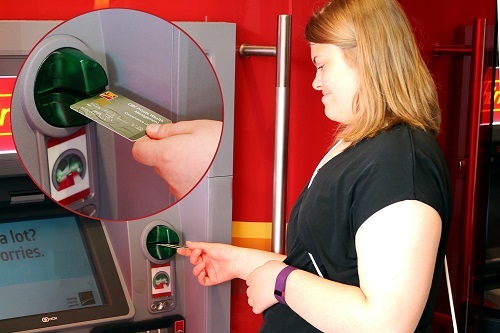How MagnusCards are part of one bank’s mission to build a more inclusive society
–
“Every great technological or social advance has been about breaking down barriers for different groups, leading to iterative advances in society as a whole,” says Robert Chamberland, Inclusive Design Consultant at CIBC.
The statement — an important one in an increasingly technology-driven world — perfectly articulates the ethos of the recent partnership between CIBC and Magnusmode.
“Banking is a very important part of participation and inclusion in our society. Not being able to do banking tasks is effectively exclusion from society,” says Chamberland, an accessibility expert on CIBC’s Digital team.
He’s right. Innovation and sector-changing technologies that improve accessibility have long been an integral part of finance. ATMs and mobile banking applications are particularly ubiquitous, providing options to those who face challenges banking. One can choose to access their financial information online — from anywhere, any time — on a device that suits their needs. Or, if face-to-face interaction is more effective, banks still offer in-person assistance.
That said, there’s room for further innovation to aid those with cognitive special needs. Enter MagnusCards. CIBC clients can now access digital how-to-guides, called Card Decks, hosted in the MagnusCards app. With the help of this app, users can quickly flip through the illustrated how-to guides that outline some important parts of the CIBC experience, from depositing or withdrawing from an ATM to paying a bill.
“Many people with cognitive disabilities like to use card cues, lists and reminders to do many tasks. The idea was to create a mobile app that could help,” says Chamberland. “Being able to do your own banking can help create independence.”
According to Chamberland, MagnusCards are a natural fit for their approach to technology and accessibility as banking shifts online.
“We can adjust circumstances to remove limitations to make disabilities a non-issue,” he says. “Most people nowadays experience banking digitally. Realizing this, it’s important to us that the digital experience be accessible.
Chamberland stressed the importance of meeting the needs of people who face any type of disability, be it cognitive, visual, situational or otherwise. This doesn’t just resonate with CIBC’s business practice, though. It’s core to their team and the bank’s role in innovation.
“We have the right culture. I don’t think there’s anyone at CIBC who doesn’t think accessibility is important,” says Chamberland. “Not just because it’s the right or kind thing to do, but also because it advances society as a whole, and innovates in a way that benefits everyone.”
While banks are often at the forefront of innovation — for accessibility or other goals — they are time-honoured institutions, with long-standing systems that can be difficult to change. According to Chamberland, now is the time, and CIBC’s adoption of MagnusCards is symbolic of changing tides.
“There is a movement and momentum toward inclusion and diversity, and a vision and roadmap to get there. It’s amazing to watch and gives me great hope,” he says. “At CIBC, we see this value of innovation to increase potential, to lift people up rather than keep them down.”








